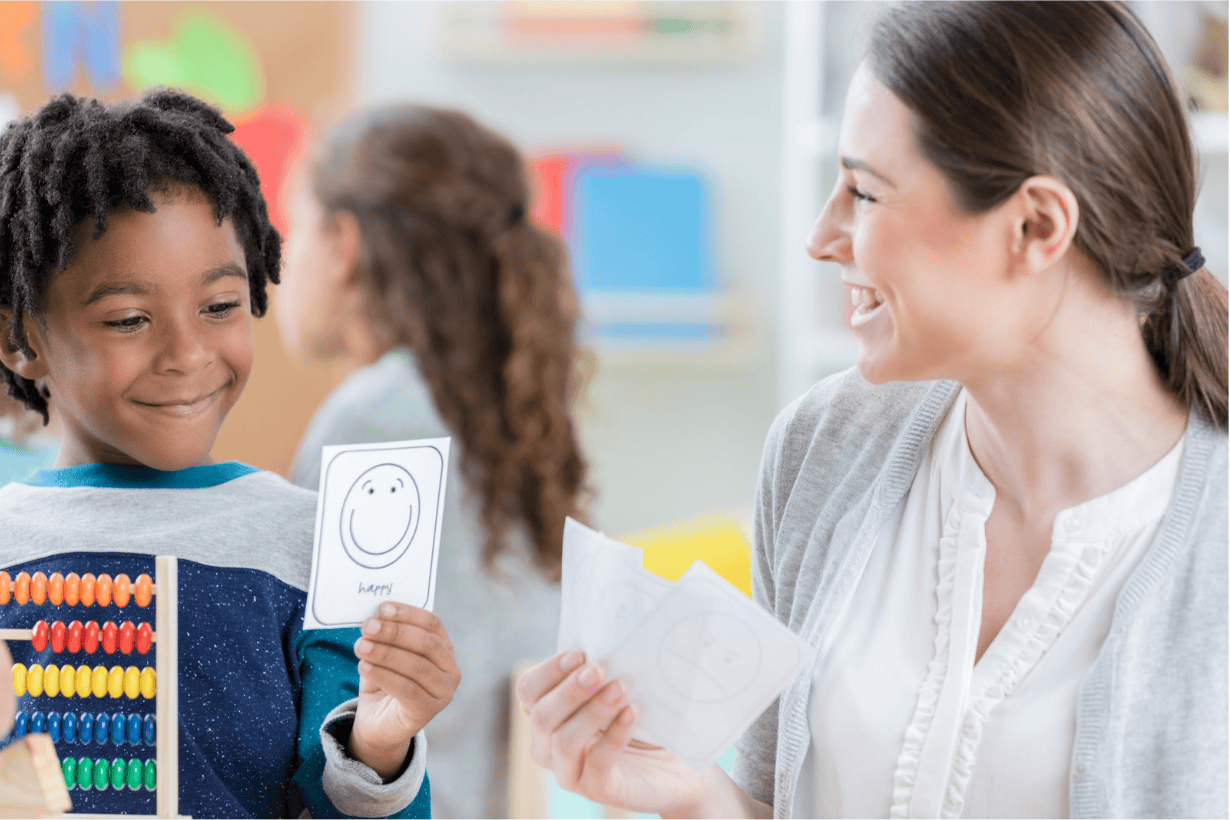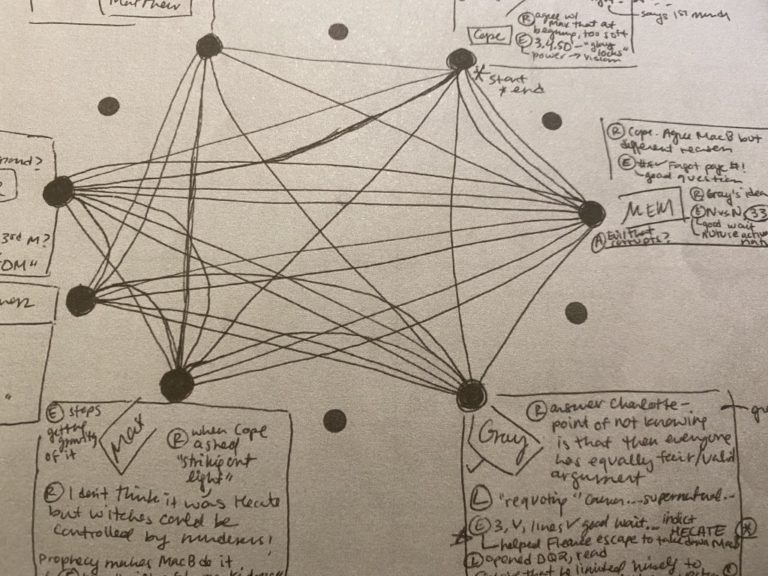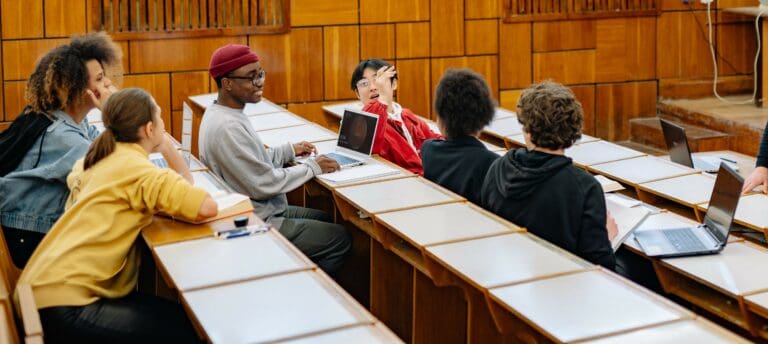Teaching Kindness and Character: An Interview with Penny Austen
Penny Austen is the founder of ThinkGive, a SEL program that helps students build character, confidence, and connection. What follows is a conversation between Penny and R.E.A.L. ® founder Liza Garonzik. This conversation has been lightly edited for clarity.

Liza: Penny, thank you so much for joining us today. We’re thrilled to have you, as we have long admired ThinkGive and your work with K-8 students in particular. I’m especially excited to have this conversation because, as you know, we recently launched R.E.A.L.® Basics: our program for Lower School students. We are digging deep into what it feels like to be a second, third, fourth, or fifth grader today, and we certainly agree with the power of kindness and your mission to build confidence and character and connection. We’re eager to learn more about ThinkGive, but first: what about you? What led you to found ThinkGive?
Penny: ThinkGive came from a place where we saw a real gap in school programming: very little curriculum and space was provided for kids to focus on their character. Many schools have service learning opportunities, mostly focused on fundraising or an adult-organized event, but those opportunities involve very little student agency and student learning. What’s more, they don’t connect to who the students are as people, why service matters to them, or how they might continue taking action to impact others going forward.
I think there’s a connection between this gap in character education and a societal shift. Fewer families gather around the dinner table every evening, and nowadays, so many after-school activities can get in the way of this family connection. We wanted to create a space that kids could own, that was theirs, where they could discover the power of their actions, however small.
Penny Austen
Liza: Is that your perspective as a parent? Or do you have a background in education, too?
Penny: My background is in business, so we really leaned on educators to develop this program, but it was born partially from my perspective as a parent. We had a one-page concept idea that we shared with a number of educators. We sat and talked to them, heard about their needs and gaps, and decided to move forward with ThinkGive.
Liza: I love that story and vision. At R.E.A.L.®, we’re obsessed with student voice, so I’m especially interested to learn what the kids say about your program. What difference does it make for them, and what’s their experience like?
Penny: The biggest outcomes we hear from the kids are around connection. That’s unsurprising because every lesson at ThinkGive ends with a directive for students to go and take an action of their choosing. Every time, they are challenged to connect in some way, shape, or form with themselves, somebody else, a place, or a thing. Unsurprisingly, they come back and report feeling much more connected to their peers, family, community, and educators.
Liza: What does that look like? Do they say: I feel more connected to my teacher, or is it more specific than that?
Penny: A common theme from students is a sense of empowerment, the discovery of their ability to make a difference, influence others, and do good, and a feeling of belonging. They don’t explicitly say, “I feel like I belong more,” but you can tell from what they’re saying that they have a deeper sense of belonging in their communities. Educators report the same thing: more caring and connected class communities. That’s hard to measure, but educators know when they have it. Many of our educators report that this program creates that kind of community for them, and it lasts throughout the year.
Liza: Sometimes SEL can feel squishy or soft, but what you’re describing in terms of impact sounds foundational. How do you see social-emotional learning fitting in with academics and the rest of school?
Penny: I see social-emotional learning as the foundation for everything at school. I don’t understand how we can expect young people to focus on academic subjects like math, English, history, and geography when they don’t feel safe, supported, or like they belong. I see SEL as the bedrock of a child’s successful academic experience. The sooner students develop emotional intelligence, awareness, and a comfort level in discussions, the better their interpersonal relationships will be.
SEL teaches skills for life. Academics are super important, but the skills you learn through SEL allow you to have great relationships and interpersonal skills at home, work, and socially throughout your life. Research shows that these skills are more important in indicating a trajectory to success in work and life than academic scores.
Penny austen
Liza: We often think at R.E.A.L. ® about how the discussion skills instruction we do is the mechanics of relationships. It’s really important to make sure there’s time and space dedicated toward teaching these foundational skills and capacities.
What about for teachers? I know that sometimes SEL can be portrayed as a trade-off with academics. How do teachers experience your program and engage with your organization, both programmatically and emotionally?
Penny: One of my favorite quotes from an educator is that ThinkGive was the highlight of their year. I think that’s because ThinkGive educators participate in the program alongside their students. They’re taking part. They’re doing exactly what they’re asking their students to do, essentially modeling for their students and then posting about it, sharing, and being vulnerable. I think this humanizes the educators in their students’ eyes. All of a sudden, educators are able to have a different relationship with their students.
We hear that again and again—and even more from administrators who have little direct connection with students. They can use the program as a point of connection. It gives them a way “in”—to build relationships with students they otherwise don’t have.
Liza: Zooming out a bit: what are some of your biggest hopes for education in the future?
Penny: Our goal is to promote equity in education by providing social and emotional learning (SEL) to under-resourced youth who may not receive it in their schools. We are collaborating with organizations that work with young people outside of school hours to help achieve this mission.
The need we see there is real. ThinkGive isn’t just a nice thing to have—it is a necessity. Providing more youth with opportunities to develop the foundational social skills and emotional intelligence they need for life is incredibly important to us.
penny austen
Liza: I agree. And absolutely – we think often about how these skills are what will enable society to move forward in a positive direction, and it’s critical that kids from all backgrounds and all different school experiences are equipped with what they need to navigate not just academic success in school, but the relationships that define lives.
Penny: The other piece goes back to students’ agency. School can be an incredible place for young people to push their boundaries and figure out who they are, but they have to have agency to do that. Tied into that is a feeling of safety and belonging. I think school is potentially such a great environment for youth to explore their character, moral scaffolding, and how they want to walk through life.
Liza: Ok, count me inspired. Sign me up for that future, right? Thank you so much for joining us today, Penny. We’re excited to see how ThinkGive continues to grow and inspire kids to be kind and compassionate throughout their lives.
Penny: Thank you!






